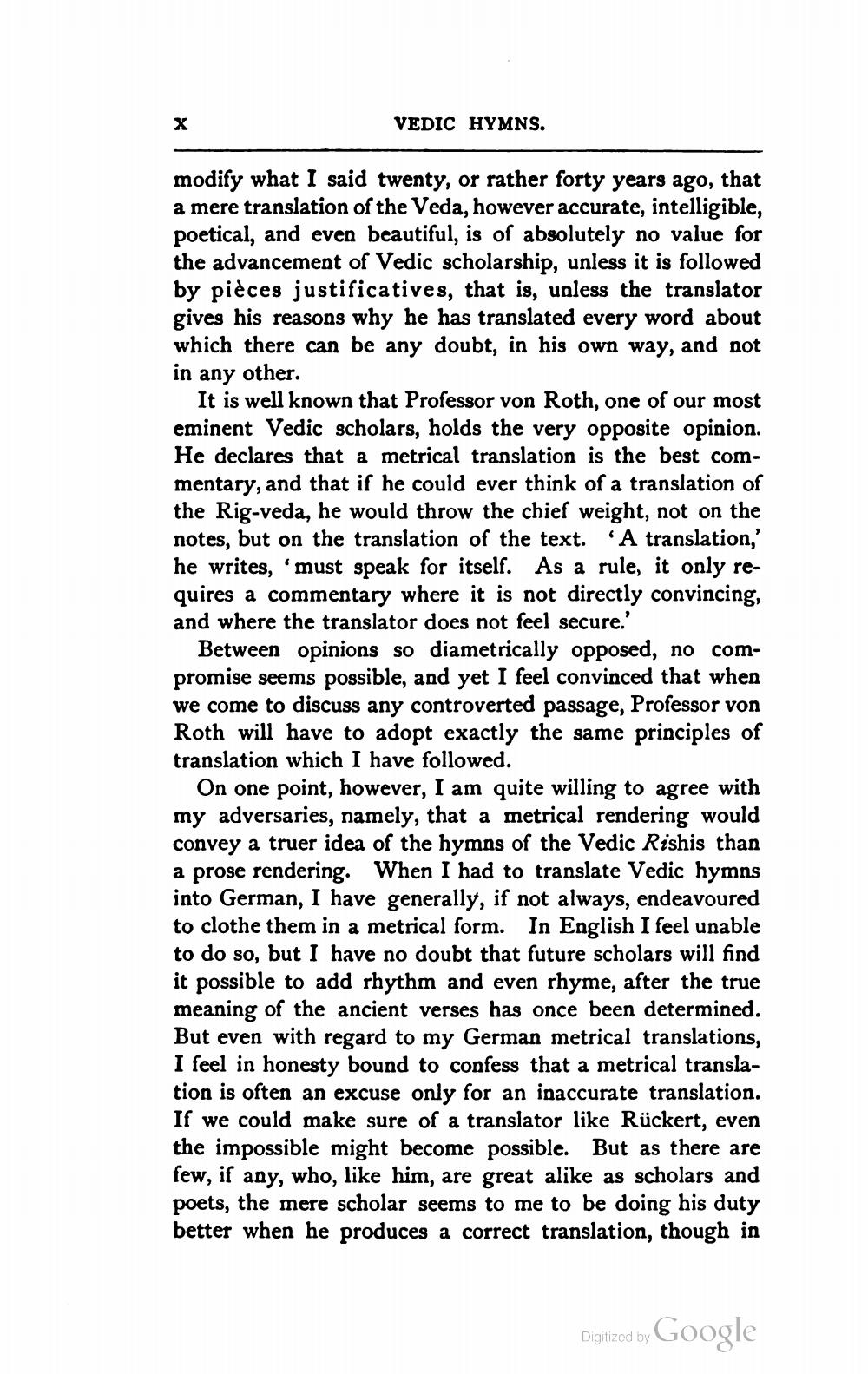________________
VEDIC HYMNS.
modify what I said twenty, or rather forty years ago, that a mere translation of the Veda, however accurate, intelligible, poetical, and even beautiful, is of absolutely no value for the advancement of Vedic scholarship, unless it is followed by pièces justificatives, that is, unless the translator gives his reasons why he has translated every word about which there can be any doubt, in his own way, and not in any other.
It is well known that Professor von Roth, one of our most eminent Vedic scholars, holds the very opposite opinion. He declares that a metrical translation is the best commentary, and that if he could ever think of a translation of the Rig-veda, he would throw the chief weight, not on the notes, but on the translation of the text. A translation,' he writes, 'must speak for itself. As a rule, it only requires a commentary where it is not directly convincing, and where the translator does not feel secure.'
Between opinions so diametrically opposed, no compromise seems possible, and yet I feel convinced that when we come to discuss any controverted passage, Professor von Roth will have to adopt exactly the same principles of translation which I have followed.
On one point, however, I am quite willing to agree with my adversaries, namely, that a metrical rendering would convey a truer idea of the hymns of the Vedic Rishis than a prose rendering. When I had to translate Vedic hymns into German, I have generally, if not always, endeavoured to clothe them in a metrical form. In English I feel unable to do so, but I have no doubt that future scholars will find it possible to add rhythm and even rhyme, after the true meaning of the ancient verses has once been determined. But even with regard to my German metrical translations, I feel in honesty bound to confess that a metrical translation is often an excuse only for an inaccurate translation. If we could make sure of a translator like Rückert, even the impossible might become possible. But as there are few, if any, who, like him, are great alike as scholars and poets, the mere scholar seems to me to be doing his duty better when he produces a correct translation, though in
Digitized by Google




